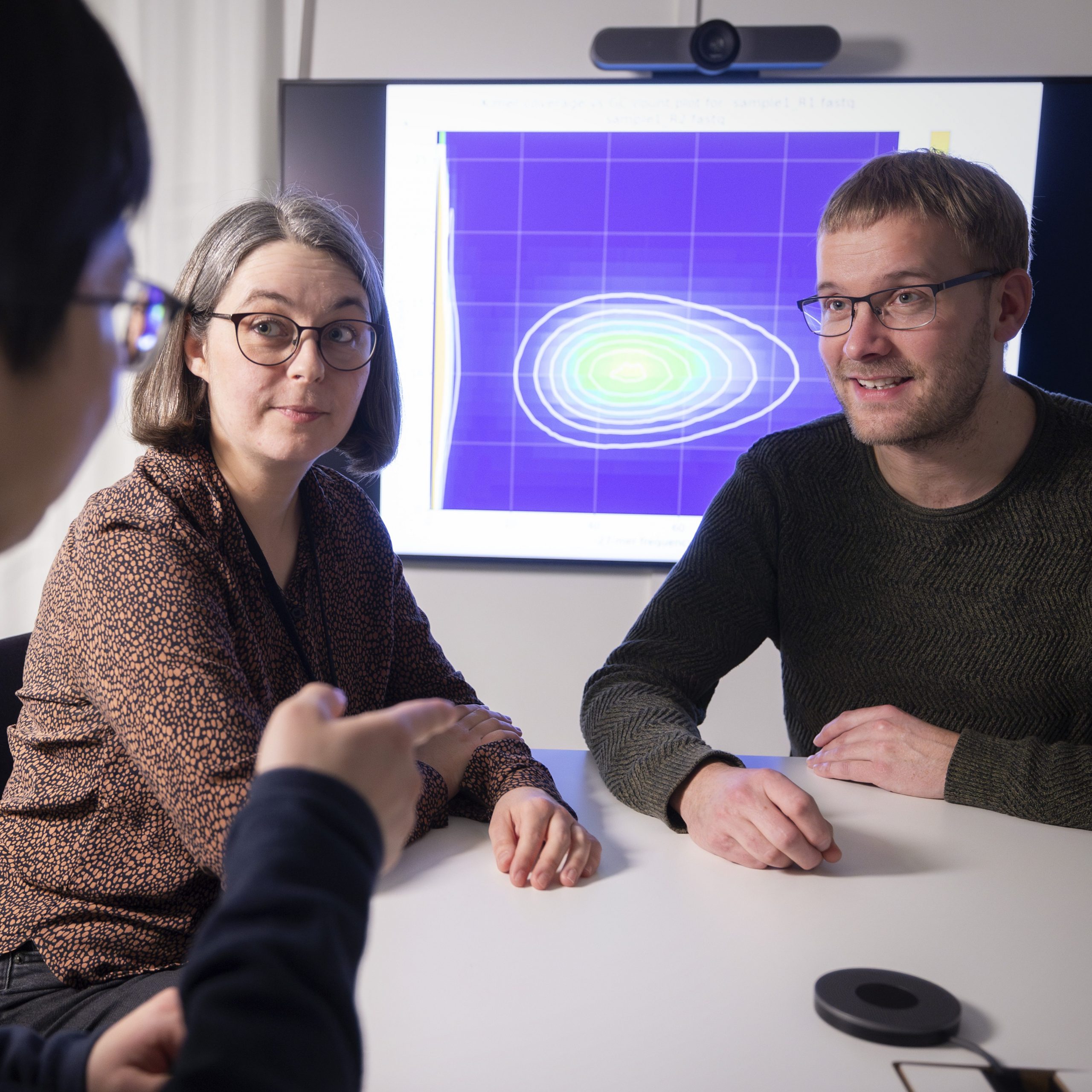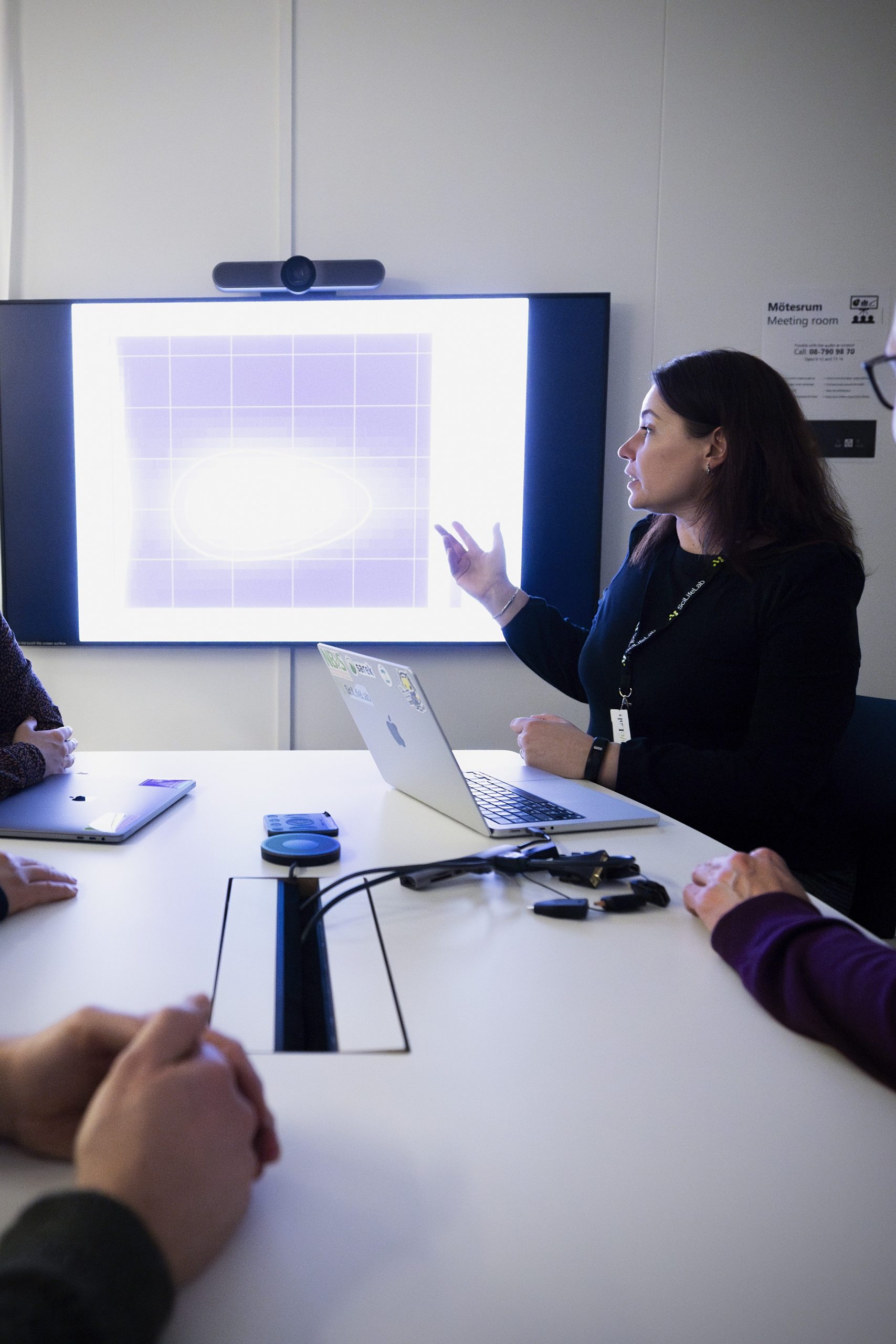
Briefly about Bioinformatics
While bioinformatics and structured data handling are integral parts of all SciLifeLab service platforms, additional stand-alone bioinformatics and data services support is also available to provide the Swedish Life Science community with state-of-the-art expertise in bioinformatics and data science.
SciLifeLab offers direct access to senior experts in e.g. bioinformatics, biostatistics and machine learning, who can engage in custom-tailored data analyses and systems development tasks in individual research projects. Our experts cover many technology areas, including large-scale omics, image analysis, digital pathology, and structural biology, with domain-knowledge across a broad range of research fields. We also provide assistance in FAIR data management and data publication, including handling and accessibility of sensitive human research data. SciLifeLab staff have also set up a very broad range of national courses, events and mentor programs to efficiently disseminate bioinformatics knowledge in the research community.
SciLifeLab also provides advanced infrastructure, bioinformatics tools, and application expert support at the national compute infrastructures, to ensure an ecosystem of services to simplify access and analysis of large-scale life science research data.
Contact person
For general inquiries about bioinformatics services at SciLifeLab, please contact Anna.

Support Manager
Bioinformatics Platform (NBIS)
Uppsala University
info@nbis.se
+46 (0) 18 471 42 26
What we offer at SciLifeLab
Bioinformatics, Data Science and Image Analysis Support
The SciLifeLab Bioinformatics platform (NBIS) has ~120 experts distributed across six sites in Sweden (Lund, Gothenburg, Linköping, Stockholm, Uppsala and Umeå). We work together with the other SciLifeLab platforms and other stakeholders within and across many service areas such as genomics, proteomics, metabolomics, spatial biology, imaging and structural biology, providing several types of services as listed below.
- Free drop-in and initial project consultation
- Custom-tailored bioinformatics support to individual research projects, including
– Large-scale omics
– Bio- and medical image analysis and AI
– Structural biology data processing and protein structure predictions
– Biostatistics and machine learning - Open Science, FAIR data management, and data publication support
- Support to systems design and handling of sensitive data
- Computational resources and digital infrastructure services
- Support for utilizing computational resources
- Advanced training and mentoring
Explore more

Other Infrastructure Resources
The National Academic Infrastructure for Supercomputing in Sweden (NAISS) is the infrastructure organisation for high-performance computing and for academic users in Sweden. NAISS is hosted by Linköping University with a national perspective and responsibility. NAISS main funding is provided by the Swedish Research Council (VR) while the user support, organised in a decentralised branch-structure, is built up in partnership with several Swedish universities.
LU-Fold is a Lund University-based facility working closely with the SciLifeLab Bioinformatics platform (NBIS), offering national services to help researchers predict protein structures using methods such as AlphaFold2. LU-Fold specialises in high-throughput applications to predict novel protein-protein interactions.
The services include:
- Predicting pairwise binding interactions of a protein of interest with all other proteins in a proteome
- Protein structure predictions of all proteins in a proteome
- Predicting higher order structures of larger complexes
- Predicting the effect of mutations and truncations on interactions
- Workshops and training events
PReSTO is a software stack for integrated structural biology adapted to high performance compute resources at the National Academic Infrastructure for Supercomputing in Sweden (NAISS) and the local MAX IV compute cluster. PReSTO is working closely with the SciLifeLab Bioinformatics and Integrated Structural Biology platforms to provide efficient and easy-to-use access to supercomputing for structural biology research projects.
- Traditional attenuation-based to advanced dark-field imaging
- Wavelength resolution, bandwidth and collimation tailored to each application
The Computational Analytics Support Platform (CASP) is an Umeå-based facility offering national support based on application and development of advanced computer-based modelling tools. CASP focuses on the analysis of non-genomic data from a wide array of technologies including, but not limited to, metabolomics, proteomics, spectroscopy and imaging.
- Traditional attenuation-based to advanced dark-field imaging
- Wavelength resolution, bandwidth and collimation tailored to each application